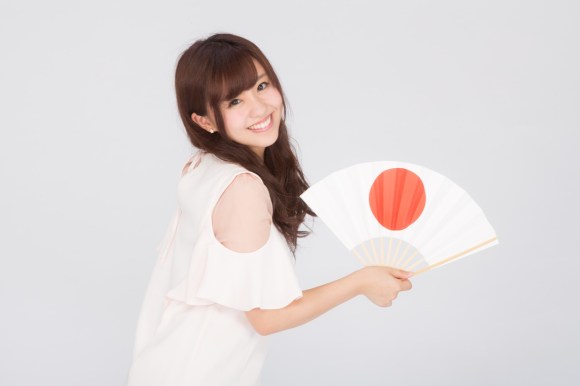
“Tee hee! Your window to society is open.”
One of the funniest features of human languages has to be euphemisms. Rather than just talk about unpleasant things head-on, we often refer to them in roundabout ways. For example, you didn’t poop, you just “went number two.” Or instead of firing someone, you’re just presenting them with “an early retirement opportunity.”
And Japanese is no different when it comes to an assortment of funny euphemisms. It turns out that no matter what language we speak, humans still like having ways to talk around things they’d rather not confront directly.
That’s why today we’re counting down the top five most hilarious Japanese euphemisms. Some of these may not be the most useful or common, but they will probably bring a smile – or look of horror! – to the face of anyone you use them on.
So let’s get to it! Starting off with…
#5. Your window to society is open: 社会の窓が開いている
Uh oh! You just got to work and you and your boss are rushing off to an important meeting when suddenly… you spot that your boss’s fly is down. You can’t have him meet important clients like this, but you also don’t want to say anything potentially embarrassing yourself, so what do you do?
Simple. Just tell him shakai no mado ga aite iru. This phrase literally translates to “your window to society is open,” which though strange at first actually kind of makes sense the more you think about it. Your pants hole is an open window to the world, possibly showing them things they’d rather not see, so it’s best to zip it up as soon as possible.
At any rate, it certainly makes more sense than “your fly is down.” That just makes it sound like I have a pet fly who crashed. And why is only the zipper on pants referred to as a “fly?” Why not on a jacket too? It just brings up more questions than it answers.
Understandability rating: 5/5. Every Japanese person I asked knew this one. Maybe that means they have a habit of not zipping up, or at least spotting those who don’t.
#4. A guest has arrived: お客さんが来た
It’s that time of month… which is itself another charming euphemism. One of the many ways in Japanese to tell someone that you’re on your period is to say okyakusan ga kita, which translates to “a guest has arrived.”
This one feels like it makes less sense the more you think about it, since wouldn’t “a guest arriving” happen when you become pregnant and hence miss a period? Or maybe we’re just thinking way too hard about this.
Other popular ways to refer to your own shark week is hatabi (“flag day”) or akabi (“red day”). While “red day” should be pretty obvious, “flag day” refers to red blood spots on white underwear looking like the Japanese flag.
▼ “Do you like my fan? I made it myself!”
“Uh….”
Understandability rating: 4/5. Only one Japanese person I asked didn’t understand this one, but he was a guy, so take that for what it’s worth.
#3. Private-use generator: 自家発電
「原子力発電所はピカチュウを探す場所ではありませんよ」 pic.twitter.com/M5rQH2TB1I
— 出ない順 試験に出ない英単語 (@NISE_TOEIC) December 20, 2016
Ah yes, self-pleasuring has to be one of the most euphemism-ridden in any language. People will go great lengths to refer to it as pretty much anything they can, except for it’s actual name of course. You can “spank the monkey,” “shake the snake,” “pet the kitty,” or even have a “ménage à moi.”
But one expression in Japanese that we really don’t have in English is jika hatsuden, which translates to a “personal-use generator.” You’re not going to get any help from the power plant, you’re gonna have to generate this electricity yourself.
And while we’re at it, though there are plenty of hilarious euphemisms for the body parts used when firing up the old “personal-use generator,” the ones I find most personally amusing are dankon (a mixture of dansei “man” and daikon “long white radish“) for the men and ke manju (“hairy steamed bun“) for the women. You’ll never look at a platter of food the same again!
Understandability rating: 3/5. About half of the Japanese people I asked knew this one, although I’m guessing the other half just didn’t want to admit it.
#2. The ant gate crossing: 蟻の門渡り
There’s really no way to sugarcoat this one, so we’ll just get right into it: let’s talk about the grundle. You know, that smooth patch of skin between your butthole and your long white radish (for men) or hairy steamed bun (for women).
Yup. That place.
Personally I didn’t even know there was a word for that area in English until a few years ago. But now you won’t have to wait to learn how to say it in Japanese, because it’s simply ari no to watari, which translates to “the ant gate crossing.”
This is another one that seems to make less sense the more you think about it. At first you’re like, oh yeah, ants are small and that area’s not very big, so I guess… but wait, where are the ants coming from? And why is there a gate? Why wouldn’t they be crossing over a plain or field? And why are they traveling out of one hole and into another?!
▼ If they’re fire ants, that’s really gonna hurt….
Fire Ants in My Pants: Only the Worst Summer Vacation in the History of Forever (Funn https://t.co/gWkKKLugfm pic.twitter.com/lCCShhgY1X
— Brony Sainclair (@SainclairBrony) December 10, 2016
Understandability rating: 2/5. Only a few of the Japanese people I asked knew about this one. When I asked them how they referred to the area otherwise, they just giggled and said they don’t know, so I think that means we need to make this one better known, so that the whole world can be better educated about the grundle area!
And the #1 most hilarious Japanese euphemism is…
.
.
.
.
.
.
.
.
.
.
1. Like washing a burdock root in the Pacific Ocean: 太平洋でごぼうを洗う
Have you ever heard the expression “like throwing a hotdog down a hallway?” How about “like dropping a toothpick in a volcano?”
Well rest assured that the same kind of ridiculous euphemism exists in Japanese too: taiheiyō de gobō o arau. This literally translates to “washing a burdock root in the Pacific Ocean.” Yikes, that’s even more of an insult than any of the English ones!
Understandability rating: 1/5. Only one of the Japanese people I asked knew about this saying, but all the others I asked laughed at it as soon as I told them it (before I explained the meaning), so I have a feeling they just didn’t want to admit to knowing such a “dirty” phrase.
Also, for those unfamiliar with burdock root, it’s a long thin root full of fiber that’s often cut up and served in soups and rice.
▼ It also happens to be the name of Goku’s father,
but don’t you dare say anything about Goku’s mom!
So there you have it, the top five most hilarious Japanese euphemisms. Do you know any funny euphemisms in Japanese that we missed, or in any other languages? Let us know in the comments, and when you’re ready to make up to your Japanese friends for using these euphemisms on them, be sure to check out the top five hand gestures that you should avoid around them so you don’t make things worse.
Top image: PAKUTASO (edited by RocketNews24)
W.T.F. Japan will be back next Thursday. In the meantime, give me a follow on Twitter and let me know if there’s any topics you’d like to see covered. See you next week!





 W.T.F. Japan: Top 5 offbeat Japanese animal cafes【Weird Top Five】
W.T.F. Japan: Top 5 offbeat Japanese animal cafes【Weird Top Five】 W.T.F. Japan: Top 5 most difficult kanji ever【Weird Top Five】
W.T.F. Japan: Top 5 most difficult kanji ever【Weird Top Five】 The top five places to survive a real attack by Titans in Japan
The top five places to survive a real attack by Titans in Japan Three of the best Japanese convenience store sweets you’ll want to try this autumn
Three of the best Japanese convenience store sweets you’ll want to try this autumn Mr. Sato asks the police how he can avoid getting hassled by them
Mr. Sato asks the police how he can avoid getting hassled by them Foreigner’s request for help in Tokyo makes us sad for the state of society
Foreigner’s request for help in Tokyo makes us sad for the state of society Japanese city loses residents’ personal data, which was on paper being transported on a windy day
Japanese city loses residents’ personal data, which was on paper being transported on a windy day Mt. Koya planning to instate visitor’s tax to cope with huge tourist numbers
Mt. Koya planning to instate visitor’s tax to cope with huge tourist numbers Seaside scenery, history, and so many desserts on Yokohama’s Akai Kutsu【Japan Loop Buses】
Seaside scenery, history, and so many desserts on Yokohama’s Akai Kutsu【Japan Loop Buses】 Japan’s summertime towelket pillowcases are even better with the addition of Ghibli stars【Photos】
Japan’s summertime towelket pillowcases are even better with the addition of Ghibli stars【Photos】 Red light district sushi restaurant in Tokyo shows us just how wrong we were about it
Red light district sushi restaurant in Tokyo shows us just how wrong we were about it Smash Bros. director Sakurai stabs Kirby in the face, has delicious justification for it
Smash Bros. director Sakurai stabs Kirby in the face, has delicious justification for it Ultra-realistic cat latte art blows us away, puts us off our coffee
Ultra-realistic cat latte art blows us away, puts us off our coffee We tried Korea’s way-too-big King Tonkatsu Burger at Lotteria 【Taste Test】
We tried Korea’s way-too-big King Tonkatsu Burger at Lotteria 【Taste Test】 Ghibli Park now selling “Grilled Frogs” from food cart in Valley of Witches
Ghibli Park now selling “Grilled Frogs” from food cart in Valley of Witches McDonald’s new Happy Meals offer up cute and practical Sanrio lifestyle goods
McDonald’s new Happy Meals offer up cute and practical Sanrio lifestyle goods Japanese ramen restaurants under pressure from new yen banknotes
Japanese ramen restaurants under pressure from new yen banknotes French Fries Bread in Tokyo’s Shibuya becomes a hit on social media
French Fries Bread in Tokyo’s Shibuya becomes a hit on social media Studio Ghibli releases new action figures featuring Nausicaä of the Valley of the Wind characters
Studio Ghibli releases new action figures featuring Nausicaä of the Valley of the Wind characters New private rooms on Tokaido Shinkansen change the way we travel from Tokyo to Kyoto
New private rooms on Tokaido Shinkansen change the way we travel from Tokyo to Kyoto Tokyo Tsukiji fish market site to be redeveloped with 50,000-seat stadium, hotel, shopping center
Tokyo Tsukiji fish market site to be redeveloped with 50,000-seat stadium, hotel, shopping center Beautiful Ghibli sealing wax kits let you create accessories and elegant letter decorations【Pics】
Beautiful Ghibli sealing wax kits let you create accessories and elegant letter decorations【Pics】 Studio Ghibli releases Kiki’s Delivery Service chocolate cake pouches in Japan
Studio Ghibli releases Kiki’s Delivery Service chocolate cake pouches in Japan New definition of “Japanese whiskey” goes into effect to prevent fakes from fooling overseas buyers
New definition of “Japanese whiskey” goes into effect to prevent fakes from fooling overseas buyers Our Japanese reporter visits Costco in the U.S., finds super American and very Japanese things
Our Japanese reporter visits Costco in the U.S., finds super American and very Japanese things All-you-can-drink Starbucks and amazing views part of Tokyo’s new 170 meter-high sky lounge
All-you-can-drink Starbucks and amazing views part of Tokyo’s new 170 meter-high sky lounge More foreign tourists than ever before in history visited Japan last month
More foreign tourists than ever before in history visited Japan last month New Pokémon cakes let you eat your way through Pikachu and all the Eevee evolutions
New Pokémon cakes let you eat your way through Pikachu and all the Eevee evolutions Disney princesses get official manga makeovers for Manga Princess Cafe opening in Tokyo
Disney princesses get official manga makeovers for Manga Princess Cafe opening in Tokyo Sales of Japan’s most convenient train ticket/shopping payment cards suspended indefinitely
Sales of Japan’s most convenient train ticket/shopping payment cards suspended indefinitely Sold-out Studio Ghibli desktop humidifiers are back so Totoro can help you through the dry season
Sold-out Studio Ghibli desktop humidifiers are back so Totoro can help you through the dry season Japanese government to make first change to romanization spelling rules since the 1950s
Japanese government to make first change to romanization spelling rules since the 1950s Ghibli founders Toshio Suzuki and Hayao Miyazaki contribute to Japanese whisky Totoro label design
Ghibli founders Toshio Suzuki and Hayao Miyazaki contribute to Japanese whisky Totoro label design Doraemon found buried at sea as scene from 1993 anime becomes real life【Photos】
Doraemon found buried at sea as scene from 1993 anime becomes real life【Photos】 Tokyo’s most famous Starbucks is closed
Tokyo’s most famous Starbucks is closed One Piece characters’ nationalities revealed, but fans have mixed opinions
One Piece characters’ nationalities revealed, but fans have mixed opinions We asked a Uniqlo employee what four things we should buy and their suggestions didn’t disappoint
We asked a Uniqlo employee what four things we should buy and their suggestions didn’t disappoint Princesses, fruits, and blacksmiths: Study reveals the 30 most unusual family names in Japan
Princesses, fruits, and blacksmiths: Study reveals the 30 most unusual family names in Japan We try eating insects — they don’t taste like chicken
We try eating insects — they don’t taste like chicken Japanese actor Haruma Miura found dead at home in Tokyo
Japanese actor Haruma Miura found dead at home in Tokyo Happy Halloween! Now eat your eyeball mochi
Happy Halloween! Now eat your eyeball mochi Kyoto City official arrested for bribery with old-timey gold coin
Kyoto City official arrested for bribery with old-timey gold coin Anime fan stumbles across the recipe for Dragon Ball Z Parent and Child Rice Bowl
Anime fan stumbles across the recipe for Dragon Ball Z Parent and Child Rice Bowl What’s the true reason for Japanese train delays classed as “customer support”?
What’s the true reason for Japanese train delays classed as “customer support”? Woman fears dick pic when man suddenly sends picture of “his Gundam,” love story ensues instead
Woman fears dick pic when man suddenly sends picture of “his Gundam,” love story ensues instead At least a few of these packaging “fails” from around the world had to be intentional
At least a few of these packaging “fails” from around the world had to be intentional Artist who knows nothing about Pokémon draws pictures of them based only on names【Pics】
Artist who knows nothing about Pokémon draws pictures of them based only on names【Pics】 Earth Chemical to change name of insecticide products to “insect care products”
Earth Chemical to change name of insecticide products to “insect care products” No good at saving money? You may have your mother tongue to blame for that
No good at saving money? You may have your mother tongue to blame for that U.S. college student learns the hard way to get your Japanese kanji tattoo checked by an expert
U.S. college student learns the hard way to get your Japanese kanji tattoo checked by an expert There’s no need to care about our staff, because they’re foreigners, says Japanese maid service
There’s no need to care about our staff, because they’re foreigners, says Japanese maid service Japanese fashion app Wear has one user trying to make cardboard Gundam heads the new hot style
Japanese fashion app Wear has one user trying to make cardboard Gundam heads the new hot style Japanese woman stumbles on the power of the infamous “gaijin seat” phenomenon during flight
Japanese woman stumbles on the power of the infamous “gaijin seat” phenomenon during flight
Leave a Reply